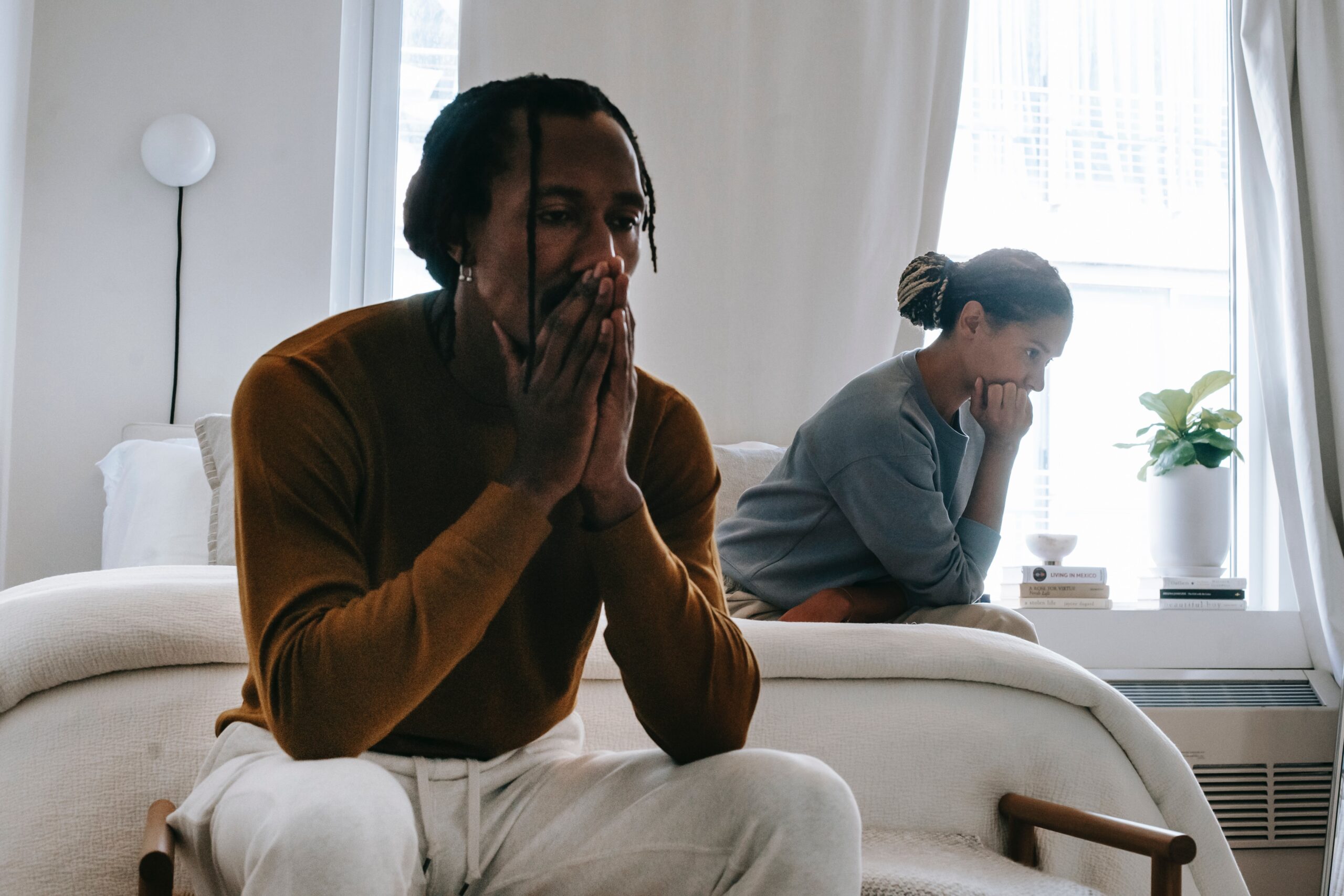Intimacy is important in a romantic relationship. It brings people together and allows them to establish trust and closeness.
While this is the case, it does not mean that two people who are married or in a committed relationship must share every last detail of their lives with their partners.
Everyone is deserving of some degree of privacy, even when living with or married to a significant other. Privacy in a relationship can be healthy, so long as it does not cross the boundary into keeping secrets from your spouse or partner.
Is honesty always the best policy?
In some situations, honesty is the best policy.
For instance, if you are in a marriage and share finances, it is typically not acceptable to hide a big purchase from your spouse.
On the other hand, you have a right to some privacy, which means that you might keep some personal information to yourself. For instance, privacy in marriage may mean that there are some embarrassing facts from your past that you do not share.
When people in a long-term relationship are able to keep personal parts of themselves secret, this creates a sense of space and privacy. Respecting boundaries in this way actually results in a healthier relationship because both members of the relationship feel that they have physical and emotional privacy.
Is privacy good or bad for your relationship?
Sometimes, people who are in a committed relationship want to be alone with their thoughts, and each person has a right to do this.
Relationships are actually stronger when partners are sensitive toward each other’s needs for some degree of privacy. It is also important to remember that everyone has differing privacy needs.
One member of the relationship may have less of a need for privacy, whereas the other may need more space and time alone.
Part of transparency in marriage is being honest about your privacy needs, and having an effective conversation about respecting boundaries and what level of privacy is expected can be helpful.
Invasion of privacy in relationships can be harmful, but when both partners respect the other’s need for privacy.
In reality, some privacy can actually lead to a greater degree of intimacy, as both partners will feel safe and respected, allowing them to open up and be vulnerable with their partner about matters they are comfortable sharing.
Difference between secrecy and privacy

While some degree of privacy in a relationship is typically healthy, it is important to understand the difference between privacy vs. secrecy. Keeping secrets in a relationship is generally harmful, especially if the secret includes information that would be hurtful to your partner.
As experts explain, secretive people are generally not just keeping personal information to themselves. They are attempting to hide something that could upset their partners.
Examples of harmful secrets in relationships are as follows:
- Being unfaithful toward your partner
- Problems at work
- Abusing drugs or alcohol
- Getting into trouble with the law
- Lying about finances or failing to pay bills
- Loaning money to other people
- Spending time with others in secrecy
- Hiding a serious illness
The above secrets in relationships, if discovered, can erode your partner’s trust and be quite damaging. If you have a serious illness or are having financial difficulties, these are things that your partner should know, as they affect your life together.
Your partner should be involved in the decision-making process for the above situations, and keeping them secret constitutes withholding information. Keeping an affair secret is obviously hurtful to marriage.
Is it important to have privacy in a relationship?
There could be questions about the importance of privacy and why does privacy matter in a relationship.
As previously mentioned, privacy in a relationship shows respect because it indicates that you and your partner are respecting boundaries. For this reason, it is important to have some privacy in a relationship.
In fact, every person needs social boundaries, as well as time alone. When there is privacy in a relationship, both partners will have space to feel relaxed and at ease.
Another reason that privacy is important in a relationship is that it actually builds trust. When you and your partner give each other personal space and respect boundaries, this sends the message that you trust each other to be faithful to the relationship, even in moments of solitude.
So, should there be privacy in a relationship?
Finally, some level of privacy and personal space is just healthy.
Certainly, when you are in a committed relationship with someone, you want to create a life with them, but this doesn’t mean that you don’t have a need to have moments to yourself from time to time. Ultimately, privacy in a relationship is good for everyone’s sanity.
What sort of details should you share in a relationship?
Privacy in a relationship is important and healthy, but that doesn’t mean you shouldn’t ever share secrets with your partner.
After all, your relationship should be a safe space where you are able to communicate your hopes, dreams, and fears with your spouse or significant other, without fear of judgment.
Throughout the course of a committed relationship, it is important to share details about your future goals, your life plans, and what you value in a relationship.
Other specific details should be shared when you find yourself hiding things in a relationship that would hurt your partner if they discovered you had been withholding the information.
For example, a medical diagnosis, a mental health condition, or an addiction should be disclosed to your partner. It is also important to share if you have past criminal charges or have major debts.
While the answer should you tell your partner everything is no, withholding this type of information constitutes secret-keeping, which is harmful to a relationship.
- Good times to share a secret
If you have been withholding something from your partner and it constitutes a secret, it is time to share this information with them, but there are some times for sharing a secret that may be better than others.
- Wait to share a secret until your spouse or significant other is in a good mood and has your full attention.
- Choose a day when you will have enough time to reveal the secret and have a discussion about it.
- You should also choose a time when both of you are relatively well-rested and do not have anything particularly taxing or stressful occurring soon after the discussion.
- Bad times to share a secret
There are some times that are not optimal for sharing a secret, such as the following:
- Right before bed
- When you or your partner have been drinking alcohol
- When one or both of you is dealing with a stressful situation
- When one of you is angry or in a bad mood
- When your partner is dealing with an illness or is tired
- When your partner is already upset about something
What constitutes trespassing upon a partner’s privacy?
While there are some secrets that should be shared within a relationship, there are some things that your partner has a right to keep private. Invasion of privacy in a relationship can therefore be problematic.
To prevent problems from arising, it is helpful to understand what constitutes trespassing upon a partner’s privacy in a marriage or relationship.
One scenario that represents a violation of privacy is reading through your partner’s emails or text messages. Perhaps your partner has exchanged text messages with a sibling, parent, or close friend, and they have discussed information that is meant to be between the two of them.
Your spouse or significant other has a right to have private conversations with important people in their life. Reading through the information that was not meant to be shared with you is a clear violation of space.
Other situations that constitute an invasion of privacy in a relationship are as follows:
- Reading your partner’s journal
- Looking through your partner’s personal belongings
- Searching your partner’s pockets or looking through their car
The above are the invasion of privacy when they are done without permission.
Refraining from trespassing upon your partners’ privacy isn’t only beneficial to your significant other; it also benefits you.
Sometimes, our imaginations run wild, so you may encounter an email that your partner has sent to someone else, and because you do not understand the context of the situation, you might misinterpret it.
This can lead you to jump to the worst conclusion or accuse your partner of disrespecting you, even if that was not the intent.
In the end, trusting your partner and allowing them to have private exchanges prevents misunderstandings and builds a stronger relationship.
What things should be kept private in a relationship?

There could also be topics your partner may wish to keep private:
- Information from your partner’s childhood,
- Stories from past relationships
- There may also be family secrets that your partner does not share with you.
Some people may be more comfortable sharing this type of information than others, so you may have to have a conversation with your partner about expectations.
In some cases, partners may disagree over what constitutes the difference between privacy and secrecy in relationships.
For instance, you may feel that your partner should share a certain piece of personal information with you, but your partner may want to keep it private.
If this is the case, have a discussion with your partner about how their lack of sharing makes you feel.
Perhaps they will open up and share a bit of what they feel, but do not pressure them to share too much if they still are not willing, as this can be an example of invasion of privacy in relationships.
Some people may simply be more private than others, as they fear rejection and are worried that sharing certain personal information may lead to rejection or judgment. In this case, it is helpful to be patient and understanding with your partner. They may open up more over time.
Privacy between you and your partner
Just as you and your partner have a right to some degree of privacy within the relationship, it is also important to understand the benefits of keeping some details of your partnership private from other people. In general, the following matters should not be discussed outside the relationship:
- Financial problems that you and/or your spouse are having
- Details of your sex life
- Family issues the two of you are experiencing
- Pet peeves you have about your partner
- Sharing that you are trying to have children
- Things that make your partner feel insecure
- The details of fights between the two of you
Sharing information that should be kept between the two of you can embarrass your partner or break the trust within your relationship. There are some things that just shouldn’t be shared, which include conflict in the relationship.
It may be tempting to vent with a relative about the fight or disagreement you and your spouse have had, but this can be damaging to your partner and your relationship.
In the video below, Mary Jo Rapini talks about the things that should be kept private between the couple, like arguments, and more. Know them all below:
When you vent to someone about your partner, you are probably in the midst of a conflict and sharing your side of the story in order to gain support and sympathy.
This causes you to paint your partner in a negative light, and you probably aren’t sharing their side of the story. This isn’t fair to your partner. What this means is that privacy in a relationship also requires you and your partner to keep relationship problems to yourselves.
Conclusion
Keeping secrets from your spouse is not healthy, but a certain degree of privacy in a relationship is necessary and expected. When both you and your partner feel that you have personal space and are free to keep some thoughts to yourself, the relationship will flourish.
If you are having problems with determining what is healthy and what is an invasion of privacy in relationships, it may be helpful to have a discussion with your partner about each of your needs and expectations.
If you continue to have disagreements or find that you cannot agree over privacy in marriage, you may benefit from talking to a relationship counselor.
source : marriage.com





